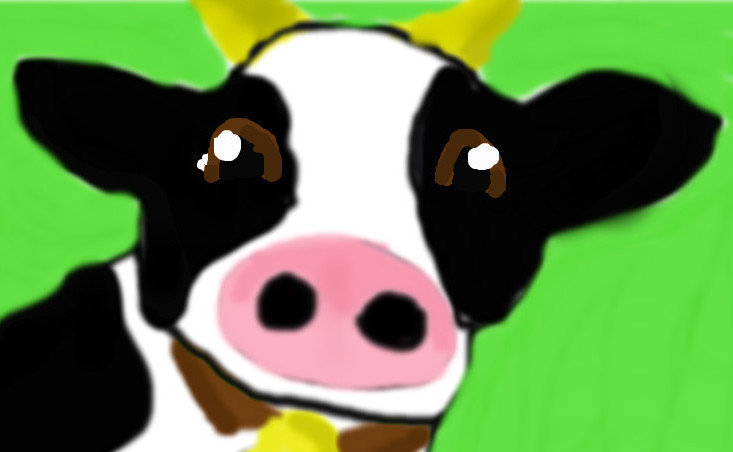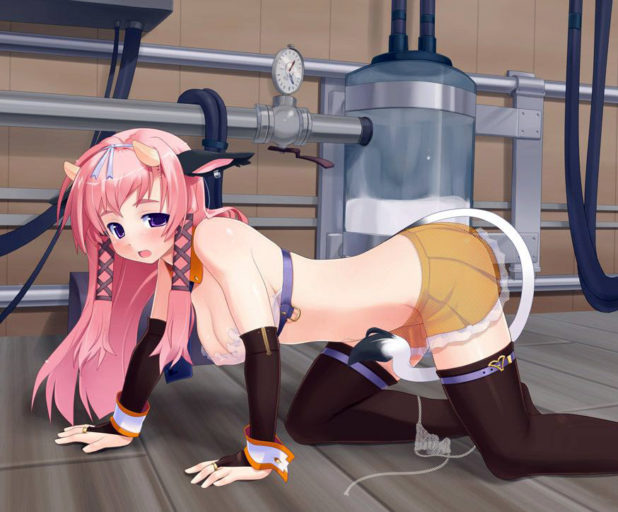Daily Stormer
August 17, 2019
I’ve been saying for years that everything we know about managing dairy cows can be applied to managing women.
A paper currently being promoted by a New York university calls on society to consider the rampant “sexual exploitation” of dairy cows by the milk industry in order to “fully fight gendered oppression.”
Specifically, the author compares cattle insemination to “rape” and the milking of cows to “sexual abuse.”
Titled “Readying the Rape Rack: Feminism and the Exploitation of Non-Human Reproductive Systems,” the paper was published Friday in a journal called Dissenting Voices, which is published and edited by the Women’s and Gender Studies program at the College at Brockport State University of New York.
The published piece aims at discussing the “sexual exploitation of non-human bodies, specifically dairy cows.” The author notes that “as a vegan and animal rights activist,” she feels compelled to reveal the “feminist aspects of animal agriculture,” a topic she says is unfortunately “under-researched,” but is nonetheless important because “the same way women’s health has been at stake for years, a dairy cow’s reproductive system has been poked and prodded.”
According to the publication, “the dairy industry is a host for sex-based discrimination,” and a “site where sexual assault and objectification based on biological makeup are highly prevalent but ignored as we choose to neglect non- humans with whom we share a planet.”
The paper argues that “in order to fully fight gendered oppression,” society must also address the plight of dairy cows, which it asserts are “still subjects to sex-based discrimination and violence,” despite their voices being “not always lifted or comprehensible.”
To be fair to cows, women are also objects whose sole redeeming features are their reproductive and lactation systems, and their voices aren’t always comprehensible.
On the surface, they seem to be trying to say something, but all they know what to do is repeat things that they heard somewhere according to whatever feelings they feel at a given time. This is why they contradict themselves so readily. Women may think that they are communicating, but all that comes out is emotional mooing.
This paper is a perfect example of that – it’s just every feminist meme in order, with “but cows tho” added to it, and the author actually thought that she was writing something original.
The piece begins by first attacking the widely contested notion that cow’s milk is even at all beneficial for humans, pointing to the government-funded “Got Milk?” campaign and the questionable motivations behind it.
But author Mackenzie April, an intern for Brockport’s Women’s Studies Department, goes further than the assertion that milk is bad for humans, by claiming that the practice of dairy farming “also supports and exemplifies the degrading way in which we treat female bodies and reproductive health,” adding that she hopes the publication will inspire feminists and other “social justice”-minded individuals to “incorporate non-human bodies into their own feminist perspectives.”
“If we are going to argue fairly for the rights of all beings in a world soured with sex and gender-based oppression, then dairy cows deserve to be taken into account when discussing issues of reproductive women’s health,” April, who then compares barren female cattle to human women who choose not to have children, writes.
“If women do not choose to become mothers, they are shamed. If a female cow is incapable of successfully bearing a calf, they are sent away for slaughter. Their reproductive system is useless, therefore, they, as a being, are useless,” April notes, arguing that this is indicative of a “double standard,” as civilized society would cringe at the thought of murdering women once they become infertile.
“The outdated stereotype about women being caretakers and most importantly child-bearers remains consistent in the dairy industry, especially when we take into account the means through which these animals are exploited,” April argues, pointing specifically to the insemination of cattle, which she compares to “rape,” the milking of cows, which she compares to “sexual abuse,” “emotional trauma related to pregnancy,” and “nonconsensual hormone treatments.”
The entire point of dairy cows is that they give birth and lactate. If they didn’t do this, there would be no reason to keep them around.
Again, exactly like women.
The author here is onto something. We definitely need more research comparing women to cows.


